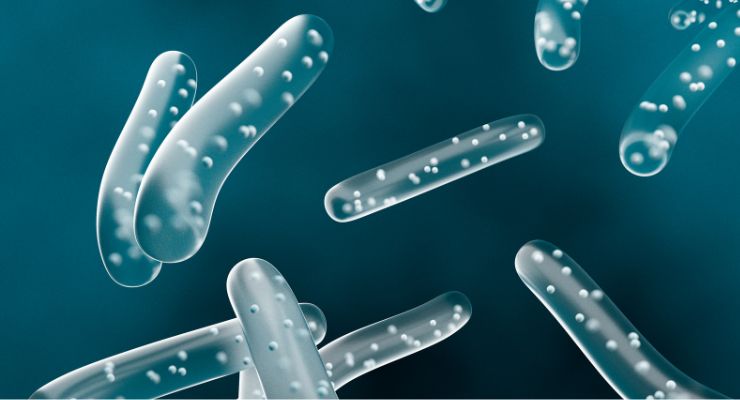01.04.24
Treatment with prebiotics and probiotics known to cause butyrate-producing bacteria to proliferate in the gut may improve body composition in elite athletes, according to a new study published in theJournal of the International Society of Sports Nutrition.
In the study, a small group of elite male water polo players consumed a vegan protein supplement with or without pre- and probiotics daily over the course of a 31-day study period, with 10 participants in each arm of the study.
Throughout the study, body composition parameters were analyzed using a bioimpedance analyzer, with gut microbiome composition measured through stool samples by metagenome sequencing. The Wilcoxon test was used to determine the change in bacterial composition during the study.
According to the authors, skeletal muscle mass (p<0.001), body cell mass (p=0.002), arm circumference (p=0.003) and protein mass (p,0.001) increased significantly in the treatment group, while body fat mass decreased significantly (p=0.004) at the same time.
Meanwhile the control group which only received a vegan protein supplement caw increased body weight and elevated value of body fat mass.
In correlation analysis, the changes in relative abundance of bacteria and corresponding metabolic pathways were correlated with changes in weight, body fat mass, and skeletal muscle mass. There was also a positive correlation between the positive changes in the intervention group and abundance of acetate-producing bacteria, the authors noted. Additionally, butyrate-producing bacteria were associated with changes in body fat mass.
“Vegan protein supplementation improved body weight in 19 players, but skeletal muscle mass increased significantly only in the intervention group. We hypothesize that due to the additional intake of prebiotics and probiotics, fermentation of SCFA by the gut microbiome was more efficient in the intervention group, which may have contributed to skeletal muscle development,” the authors concluded. “Further studies with a larger number of participants are needed to gain a deeper understanding of the effects of protein and synbiotic supplements on muscle biosynthesis and overall homeostasis in elite athletes.”
In the study, a small group of elite male water polo players consumed a vegan protein supplement with or without pre- and probiotics daily over the course of a 31-day study period, with 10 participants in each arm of the study.
Throughout the study, body composition parameters were analyzed using a bioimpedance analyzer, with gut microbiome composition measured through stool samples by metagenome sequencing. The Wilcoxon test was used to determine the change in bacterial composition during the study.
According to the authors, skeletal muscle mass (p<0.001), body cell mass (p=0.002), arm circumference (p=0.003) and protein mass (p,0.001) increased significantly in the treatment group, while body fat mass decreased significantly (p=0.004) at the same time.
Meanwhile the control group which only received a vegan protein supplement caw increased body weight and elevated value of body fat mass.
In correlation analysis, the changes in relative abundance of bacteria and corresponding metabolic pathways were correlated with changes in weight, body fat mass, and skeletal muscle mass. There was also a positive correlation between the positive changes in the intervention group and abundance of acetate-producing bacteria, the authors noted. Additionally, butyrate-producing bacteria were associated with changes in body fat mass.
“Vegan protein supplementation improved body weight in 19 players, but skeletal muscle mass increased significantly only in the intervention group. We hypothesize that due to the additional intake of prebiotics and probiotics, fermentation of SCFA by the gut microbiome was more efficient in the intervention group, which may have contributed to skeletal muscle development,” the authors concluded. “Further studies with a larger number of participants are needed to gain a deeper understanding of the effects of protein and synbiotic supplements on muscle biosynthesis and overall homeostasis in elite athletes.”




























